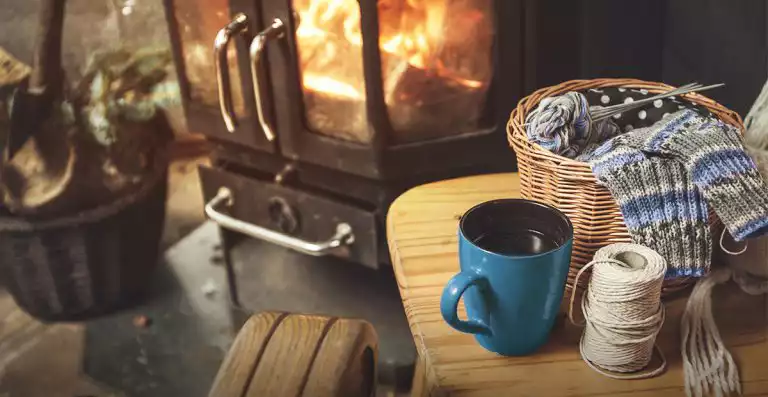Take Safety Precautions Against Residential Wood Smoke
2 minute read
It’s beginning to smell a lot like the holidays! The cool, crisp smell of winter air paired with a fresh-cut pine tree on top of your car; the sweet and spicy aroma of gingerbread cookies and cinnamon-spiced mulled wine; and the warm, smoky scent of a roaring fireplace. To keep those good times and great smells going all winter long, keep in mind that the smoke from your crackling wood fire may smell good, but it’s not good for you. Wood smoke is made up of a complex mixture of gases and fine particles also referred to as particle pollution. It may contain toxic and carcinogenic air pollutants including benzene, formaldehyde, acrolein, and polycyclic aromatic hydrocarbons (PAHs).
Sounding a little less cozy already, isn’t it?
CDC Warns About Residential Wood Smoke
Well, according to information reported on the Centers for Disease Control and Prevention’s website, you may be at increased risk of serious health effects from wood smoke exposure if you are recovering from COVID-19 due to your compromised heart and/or lung function.
It also works in the other direction, and exposure to wood smoke can irritate your lungs, cause inflammation, weaken your immune system, and leave you more susceptible to respiratory infections including COVID-19.
Residential Wood Smoke Safety Measures
To protect you and your family this winter from the adverse effects of both indoor and outdoor residential wood smoke, follow these safety measures:
- Educate yourself on the short- and long-term effects of wood smoke exposure
- Short-term: irritated eyes, throat, sinuses, and lungs; headaches; reduced lung function, particularly for children; inflammation or swelling of the lungs; risk of heart attack or stroke; worsened symptoms from existing lung diseases (such as asthma, emphysema, pneumonia, and bronchitis)
- Long-term: chronic lung disease (bronchitis or emphysema); chemical and structural lung changes; cancer
- Know the difference between symptoms of exposure to wood smoke and COVID-19
- Invest in a more efficient and cleaner device to keep warm. Choose from this list put together by the Environmental Protection Agency
- Always have your wood burning appliance, chimney, and vent professionally inspected at the start of each heating season to keep them in safe and working order
- Winterize your home to make sure it’s comfortable and safe for the winter months
- Follow best burn practices, including maintaining a hot fire, and burning only dry, seasoned firewood
- Reduce indoor airborne contaminants including viruses and the fine particles in wood smoke by installing an air purifier or HVAC filter as part of the AprilAire Healthy Air System®.
It’s important to remember that air cleaning and filtration do not provide exclusive protection from exposure to the virus that causes COVID-19. However, when used in conjunction with the CDC’s recommendations and guidelines for protecting yourself and others, filtration can help to reduce the possibility of indoor airborne transmission of COVID-19.
